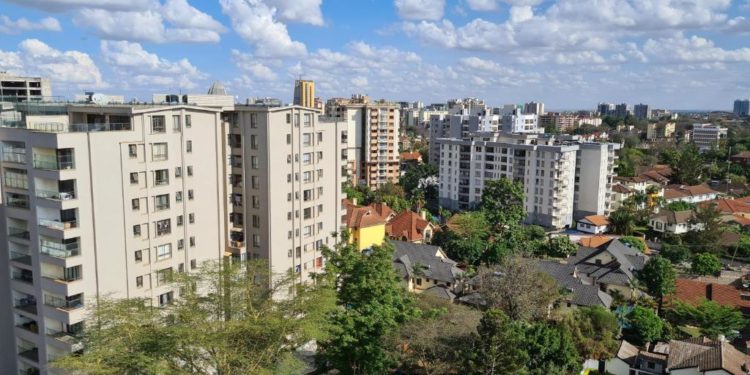Governor Johnson Sakaja’s proposal to allow tall building in various parts of the city,has been opposed by over 26 professional bodies and resident groups in Nairobi. They argue that it goes against the law and harms the environment.
“I have heard people complaining that in areas of Kileleshwa and Lavington, our homes were one-storey and now apartments have come. Nairobi is 696 square kilometres, in 2050 it will have a population of 10.5 million people. Will we expand Nairobi? No the only place we have to go is up,” he said.
He emphasised the need for high-rise buildings due to limited land despite a growing population.However, in a joint statement on Wednesday, the associations said they will move to court if the county doesn’t stop the plan, especially in areas like Kilimani and Kileleshwa.
“The governor should prioritise the expansion of critical infrastructure including sewerage, water, solid waste management, public transport, schools, health amenities, open grace spaces, fire and emergency services,” Florence Nyole, the president of the Architectural Association of Kenya said.
Teddy Obiero, chairperson of the Alliance of Nairobi Metropolitan Residents Association (ANMRA), pointed out issues like water shortages in some areas and urged authorities to address existing problems before replicating them elsewhere.
“Pipeline is a disaster, and why should we have to copy-paste Pipeline now to Kilimani, Kileleshwa and many others? Can we stop the mess at Pipeline?” He questioned.
The associations claim the right legal procedures have not been followed.They say the Sessional Paper No. 1 of 2023 on Nairobi City County Development Control Policy is currently before the Nairobi County Assembly awaiting approval.
The Kenya Alliance of Residents Associations (KARA) has expressed its support for various residents and professional bodies in Nairobi who are opposing Sakaja’s announcement regarding the rezoning of certain city areas and the expansion of new developments without following proper legal procedures or providing necessary infrastructure support.
KARA stressed the importance of prioritizing the development and execution of Local Physical Development Plans across all levels by Sakaja and the relevant departments.












